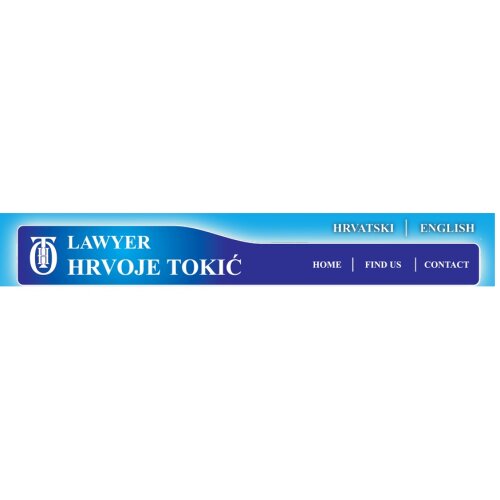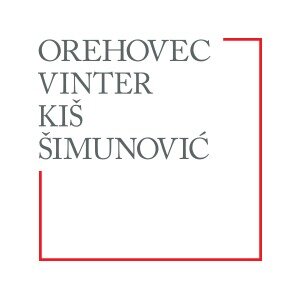Best Licensing Lawyers in Croatia
Share your needs with us, get contacted by law firms.
Free. Takes 2 min.
Or refine your search by selecting a city:
List of the best lawyers in Croatia
About Licensing Law in Croatia
Licensing law in Croatia governs the granting of permissions to individuals or entities to perform certain activities or use certain proprietary assets. It covers a range of sectors including intellectual property, business operations, telecommunications, and more. Licensing ensures that activities are carried out legally and that the rights of creators and businesses are protected. Croatia's licensing regulations are designed to align with European Union standards, ensuring that licensed activities conform to both national and international legal frameworks.
Why You May Need a Lawyer
There are various situations where legal assistance in licensing may be necessary. These include:
- Obtaining a business or operational license for a new enterprise.
- Negotiating or drafting licensing agreements for the use of intellectual property such as trademarks, patents, or copyrights.
- Resolving disputes related to licensing agreements or violations.
- Ensuring compliance with existing licensing regulations set by Croatian law.
- Interpreting complex licensing laws and regulations that affect specific industries.
- Assisting in the renewal of existing licenses or addressing license revocations.
Local Laws Overview
Croatian licensing laws cover multiple key areas including:
- Business Licensing: Regulatory requirements depending on the type of business and industry.
- Intellectual Property Licensing: Ensures protection of intellectual property rights, aligned with EU directives.
- Public Sector Licensing: Licenses related to telecommunications, transport, and other regulated sectors.
- Environmental Licensing: Necessary for operations that impact the environment, ensuring compliance with national and EU directives.
Frequently Asked Questions
What is a license and why is it necessary?
A license is a formal permission to perform a specific act or use a particular asset. It is necessary to ensure that activities comply with legal standards and to protect the rights of others who may have interests in the activity or asset.
How can I obtain a business license in Croatia?
To obtain a business license, you must apply to the relevant government authority, submitting required documents such as business plans, proof of identity, and compliance with sector-specific regulations.
What should I include in a licensing agreement?
A comprehensive licensing agreement should include the terms of use, duration, royalties or fees, termination conditions, and the rights and obligations of both parties.
How long does it take to get a license in Croatia?
The time frame can vary depending on the type of license and the completeness of your application; however, it usually ranges from a few weeks to several months.
Do I need a lawyer to draft a licensing agreement?
While not mandatory, it's highly advisable to engage a lawyer to draft or review a licensing agreement to ensure all legal aspects are properly addressed, minimizing risks of future disputes.
What happens if I operate without a required license?
Operating without a required license can lead to severe penalties including fines, business closure, and legal action against the business owner or operator.
Can a license be transferred to another party?
This depends on the terms of the original licensing agreement. Some licenses are transferable with prior consent from the licensor, while others may not be under any circumstances.
Do licenses require renewal in Croatia?
Yes, most licenses have a fixed validity period and must be renewed before expiration. The renewal process and requirements vary based on the type of license involved.
What are the fees associated with licensing in Croatia?
Fees can vary widely depending on the type of license and the industry. It's essential to check with the specific licensing authority for exact fee schedules.
Are foreign licenses recognized in Croatia?
Some foreign licenses may be recognized, especially those aligned with EU standards, but it often requires additional certification or recognition procedures before they are valid in Croatia.
Additional Resources
For further information and assistance, consider reaching out to the following entities:
- The Croatian Chamber of Commerce
- The Croatian Intellectual Property Office
- The Ministry of Economy and Sustainable Development
- Local business associations or chambers in your industry
Next Steps
If you feel you need legal assistance in licensing, consider the following steps:
- Research and identify reputable law firms or legal practitioners specializing in licensing law in Croatia.
- Prepare all relevant documentation and information regarding your specific licensing needs.
- Schedule a consultation to discuss your situation and receive tailored advice.
- Consider getting multiple opinions to ensure you receive comprehensive legal guidance.
Engaging with a lawyer can help you navigate the complexities of licensing law and ensure that your activities or agreements are fully compliant with Croatian regulations.
Lawzana helps you find the best lawyers and law firms in Croatia through a curated and pre-screened list of qualified legal professionals. Our platform offers rankings and detailed profiles of attorneys and law firms, allowing you to compare based on practice areas, including Licensing, experience, and client feedback.
Each profile includes a description of the firm's areas of practice, client reviews, team members and partners, year of establishment, spoken languages, office locations, contact information, social media presence, and any published articles or resources. Most firms on our platform speak English and are experienced in both local and international legal matters.
Get a quote from top-rated law firms in Croatia — quickly, securely, and without unnecessary hassle.
Disclaimer:
The information provided on this page is for general informational purposes only and does not constitute legal advice. While we strive to ensure the accuracy and relevance of the content, legal information may change over time, and interpretations of the law can vary. You should always consult with a qualified legal professional for advice specific to your situation.
We disclaim all liability for actions taken or not taken based on the content of this page. If you believe any information is incorrect or outdated, please contact us, and we will review and update it where appropriate.
Browse licensing law firms by city in Croatia
Refine your search by selecting a city.

















